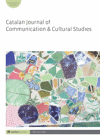
Full text loading...

On 17 and 18 May 2021 almost 8000 migrants arrived in Ceuta, crossing over from the Moroccan side of the border. The humanitarian emergency was evident, but the Spanish extreme right defined the situation as something quite different. This article analyses Vox’s activity on Twitter during the two weeks following the arrival of the migrants, with the aim of identifying the logics of racism in its discourse. The methodology used is content analysis, focusing on topics frequency and discursive strategies used. A total of 762 publications from the official Vox account are analysed. The results indicate that the party constructs the aforementioned crisis as a warlike situation of threat, by way of populist discursive strategies. The logics of racist discourse are specifically xenophobic and cultural. Vox demands anti-immigrant institutional racism that does not respect human rights. This article concludes with some reflections on the worrying normalization of racist discourse today.

Article metrics loading...

Full text loading...
References


Data & Media loading...

Publication Date:
https://doi.org/10.1386/cjcs_00069_1 Published content will be available immediately after check-out or when it is released in case of a pre-order. Please make sure to be logged in to see all available purchase options.